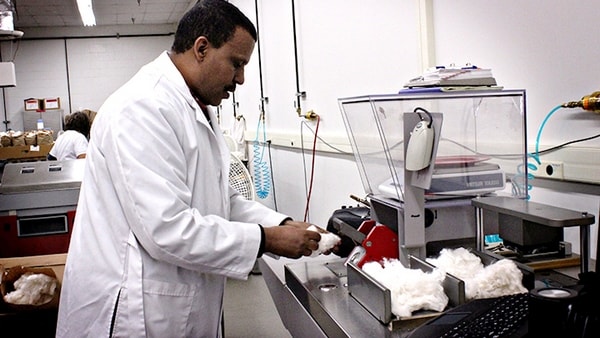US Lab Gearing Up for 2022 Wool Testing
The Texas A&M AgriLife Bill Sims Wool and Mohair Research Laboratory is ready with new capacities as expansion work continues and the lab receives new high-capacity commercial testing equipment. After shipping delays, new equipment from Australia was expected to arrive by ship in Houston.
The newly expanded laboratory will utilize state-of-the-art machinery and technology – obtained through a cooperative agreement with the American Sheep Industry Association’s Sheep Venture Company – in its service to American wool and mohair producers. It will also continue to provide innovative research and testing services for cashmere and alpaca fibers. Although the lab is in full swing with renovations as new high-capacity commercial testing equipment arrives, individual fleece-testing services continue to be offered to growers.
The lab was established in 1985 to address the needs of national wool and mohair research programs. The wool lab, originally located on the Texas A&M campus, is now in a region of Texas that supports approximately 20 percent of the American sheep population and 90 percent of the Angora goats in the nation.
Scientists at the wool lab conduct key high-priority research projects for sheep and goat raisers throughout the country. Research on objective measurement of fiber, for example, has been critical in developing improved flocks of fine-wool producing sheep, as well as ensuring domestic wool meets the required international testing specifications for commercial trade.
Housed at the Texas A&M AgriLife Research and Extension Center in San Angelo, the lab offers a nationwide service analyzing fiber samples for quality and yield. San Angelo is one of only two research laboratories that provide those services in the United States and the only one to offer — as a result of its current expansion — large-scale commercial testing required for the global trade of wool.
Source: ASI


